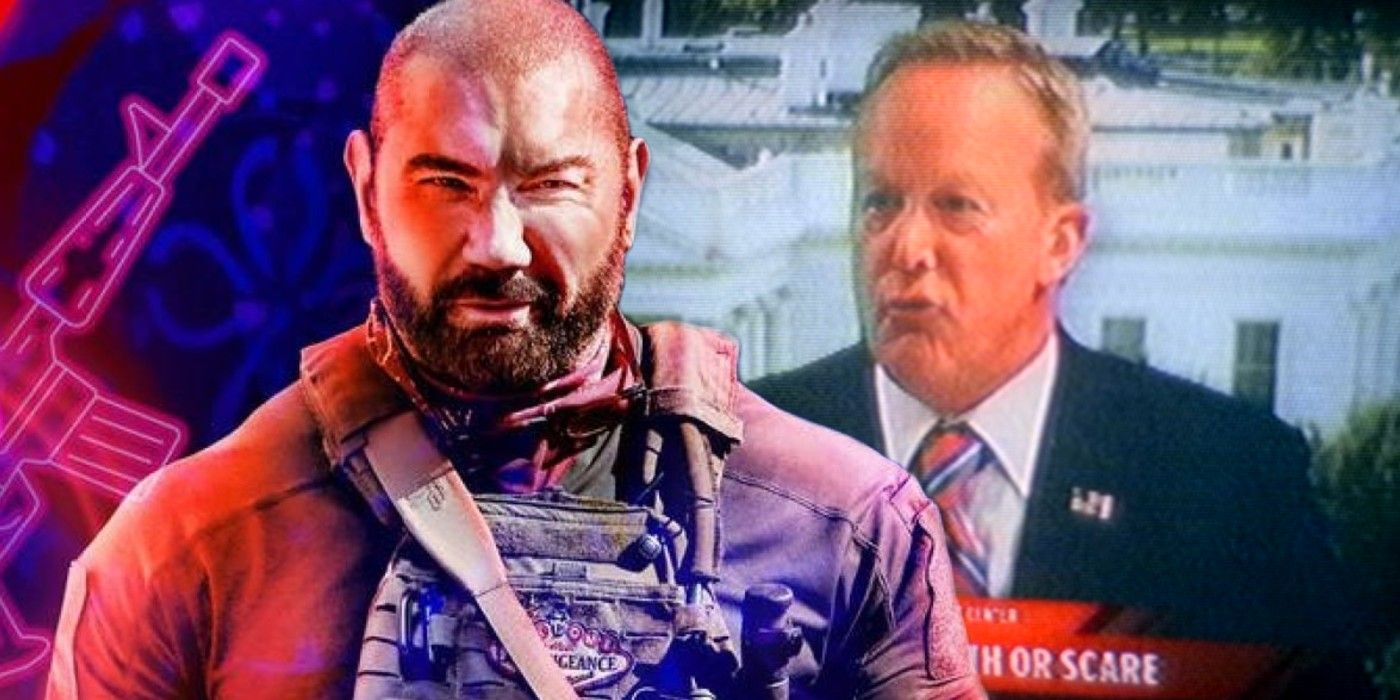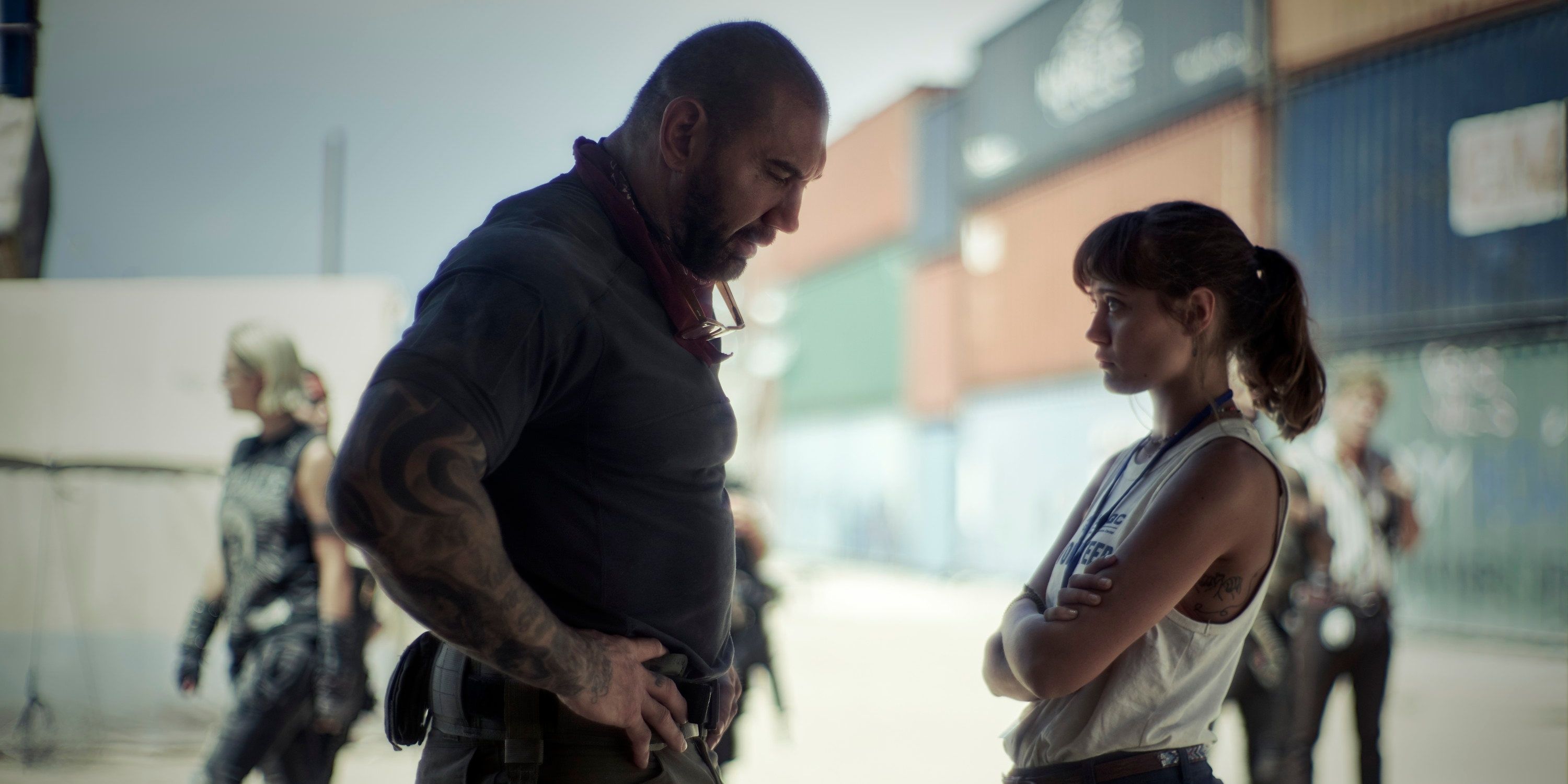What's the reason behind Army of the Dead's subtle (and not-so-subtle) jabs toward Donald Trump and his controversial presidency? In Zack Snyder's Army of the Dead, the ill-fated transport of a test subject from Area 51 triggers a zombie outbreak in the gambling capital. A military operation successfully contains the undead horde within Vegas using a wall of shipping containers and, for want of a better option, the decision is made to nuke the town. Residents who were displaced by the plague and potentially infected have been placed in a quarantine camp just outside of the wall and, years after the containment, these refugees are still living in poverty, risking their lives just to escape.
Army of the Dead surprises viewers with a highly unexpected cameo from short-lived Trump White House press secretary, Sean Spicer. Speaking on a news broadcast while Dave Bautista's Scott Ward gets ready for the mission, Spicer refers to the refugee camps as a "government funded healthcare solution" that people should be grateful for. The presenter, Donna Brazile, argues the camps are a political prison for immigrants, gay rights activists and abortion advocates. If the Spicer cameo wasn't confirmation enough, Army of the Dead's U.S. president is reported as describing the July 4 Vegas nuke as, "really cool; the ultimate fireworks show, actually kind of patriotic if you think about it." The casual banality of this line indicates clearly that the president in question is intended to be Donald Trump, who still occupied the Oval Office when Army of the Dead filmed.
Though these jokes are made at Trump's expense, they're not just random barbs - the gags are part of a wider social commentary that ties directly into themes at the core of Army of the Dead. The fictional wall surrounding Las Vegas provides an allegory for the infamous wall Trump promised to build on the U.S.-Mexico border. That certainly isn't to compare the people of Central and South America to zombies, of course, but to illustrate the social divide a physical wall creates, and how building such a barrier could be interpreted as an ineffectual replacement for political diplomacy.
Zack Snyder's commentary on the Trump administration continues with the "quarantine" camps, in which families are made to live in squalor and routinely mistreated by guards. Army of the Dead's refugee settlements are a haunting parallel to the very real immigration centers that attracted great criticism during Trump's time as president. Army of the Dead's camps serve as a reflection of the living conditions, treatment of detainees, and discriminatory attitudes that immigrants heading north into the United States faced during a presidency that campaigned heavily upon anti-immigration values. When Brazile accuses Spicer of using the quarantine camps as prisons for immigrants, gay rights activists or pro-abortion supporters, these are all demographics Trump was less-than-welcoming toward, leaving little doubt as to the critique Snyder is trying to make.
In interviews with DenOfGeek and APNews, Zack Snyder confirms his wall and refugee allegories were intended to hold a mirror up to reality, and it's perhaps fair to say most viewers did pick up on the comparison. In isolation, the Spicer cameo and president quote might seem out of place and a little too on-the-nose, but tying Army of the Dead's social commentary to a specific administration serves to ground the story in a more realistic setting, arguably making the political critique more powerful as a result. One could also suggest the Mexican wall and immigration centers were such heated issues during Trump's time in the White House, it makes more sense for Army of the Dead to play into that connection, rather than dance around which president we're talking about.
Predictably, some have taken issue with the presence of political themes in a zombie movie, and with Sean Spicer's cameo in particular. But that argument ignores the social parallels present in Dawn of the Dead, 28 Days Later, and virtually any other zombie movie you'd care to mention. Granted, Army of the Dead's commentary is far less subtle (you'd be hard-pressed to use the term "subtext" here), but neither is Zack Snyder taking political potshots without having something meaningful to say.


